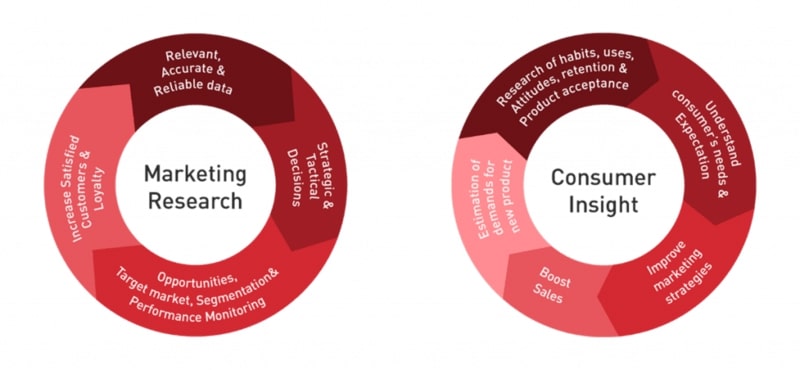What Skills Are Needed to Work in Advertising?
Success in advertising hinges on more than just ads and budgets. Discover the essential skills required to excel in the field of paid media.
Updated April 4, 2024

Paid advertising is not just about placing ads or spending money—it's about knowing what makes people click and buy. As such, you must learn about digital advertising psychology to become a well-rounded digital marketer in this niche.
Let's explore the in-demand skills needed to work in paid media so you can stay ahead of the competition and hire the right paid advertising agency or expert.
What is an advertising skill?
An advertising skill refers to the capabilities and expertise needed to create, manage, and optimize advertising campaigns across various media platforms. These skills encompass a range of activities, from the creative process of developing ad content to the analytical process of measuring its impact.
Key advertising skills include:
- Copywriting
- Design
- Strategic planning
- Market research
- Data analysis
- Digital marketing proficiency
For example, a skilled advertiser must be able to craft compelling messages that resonate with the target audience, design visually appealing ad materials, plan and execute advertising strategies, and analyze campaign performance to make data-driven decisions.
» Read these must-have advertising books to learn more.
5 essential soft skills needed to work in paid media
Effective communication skills, creativity, analytical thinking, and an ability to adapt to evolving technologies and trends are also crucial in navigating the dynamic landscape of advertising.
Here are the soft skills you'll need to thrive in paid media:
Creativity
Creativity is at the heart of advertising, driving the ability to produce original ideas and captivating campaigns. A creative advertising expert can:
- Generate innovative concepts: Develop unique advertising strategies that stand out in a crowded market.
- Design engaging content: Craft visuals and copy that resonate with the target audience and evoke emotional responses.
- Work with designers on A/B tests: Help improve designs and do last-minute tweaks to increase performance.
For example, a creative ad campaign might use an unconventional narrative or interactive elements to engage viewers, like using augmented reality (AR) in outdoor ads to create immersive experiences.
Communication
Effective communication is critical in advertising to convey messages clearly and persuasively. An adept communicator in the advertising field will:
- Articulate ideas clearly: Convey campaign concepts and strategies effectively to clients and team members.
- Negotiate and persuade: Secure buy-in from stakeholders and negotiate terms with media outlets and online publishers
- Report on results: Ability to present reports to the advertising manager / marketing director on the ads of each social media platform or search engine.
- Active listening: have the emotional intelligence to make people feel that they are heard, and consider
A communication expert might excel in pitching campaign ideas to clients, ensuring both clarity in the message and enthusiasm for the vision.
Time management
Time management is essential in the fast-paced advertising industry. Effective time management involves:
- Prioritizing Tasks: Identify urgent and important tasks to optimize campaign timelines.
- Meeting Deadlines: Ensure all campaign elements are launched on schedule.
Advertising professionals often work with tight deadlines, balancing multiple projects simultaneously, like coordinating a product launch with a social media blitz.
Decision-making
Strong decision-making skills enable advertising professionals to choose the best strategies and solutions. This skill set includes:
- Analyzing Data: Make informed decisions based on market research and campaign analytics using Google Analytics, and other software.
- Risk Assessment: Evaluate the potential risks and benefits of different advertising approaches.
Decision-makers in advertising might decide on which advertising channels will provide the best ROI for a particular campaign. A lot of it involves analytical skills and actually looking at the data (Google Analytics, Mixpanel, etc.) to try to predict trends moving forward.
Teamwork skills
Collaboration and teamwork are fundamental in advertising, where cross-functional teams bring campaigns to life. Teamwork skills involve:
- Collaborative Development: Working with creatives, analysts, and strategists to develop and implement campaigns.
- Conflict Resolution: Navigating differences in opinions to find effective solutions while ensuring the team remains focused on common objectives. Effective teamwork in advertising relies on clear communication, mutual respect, and a shared vision to overcome obstacles and achieve campaign goals.
- Interdepartmental Coordination: Synchronizing efforts across different departments to ensure a unified approach to campaign execution. This can involve regular meetings, shared project management tools, and clear channels of communication to align the efforts of creative teams, marketing departments, sales teams, and external partners.
- Feedback Implementation: Constructively using feedback to improve campaign strategies and creative executions. This includes being open to critique, actively seeking input from team members, and integrating suggestions to refine and enhance the final output.
- Leadership and Influence: Guiding the team towards achieving advertising goals, inspiring creativity, and fostering an environment where team members are motivated and engaged in the project's success.
Teamwork in advertising is exemplified when a campaign is brought to life through the seamless integration of ideas, talents, and efforts from across the organization, leading to innovative and effective advertising solutions that drive brand success and hit business goals.
X Hard skills needed for advertising excellence
Soft skills are not enough to be good at digital advertising. You also need some hard skills. For example - proficiency in search engine marketing (SEM), social media advertising, and programmatic buying have become increasingly important.
Advertisers need to be adept at using digital platforms to target specific demographics, track online behavior, and optimize campaigns in real time for the best return on investment.
These hard skills enable advertisers to connect with audiences in meaningful ways, achieve business objectives, and drive market growth.
Proficiency with different advertising platforms
While niche platform knowledge is beneficial, avoid overly narrowing your focus. Whether you specialize in digital platforms like Facebook and TikTok or know how to run Google ads, the most effective marketers go deeper to understand post-click dynamics.
Yes, you can specialize in one area like social ads, to accelerate early wins, but it’s still essential to grasp the end-to-end customer journey and broader content principles to translate across various channels.
Strive to absorb a big-picture perspective from the start. Look beyond any single platform or offering. Learn conversion rate optimization to improve post-ad landing experiences continually.
» Pro tip: want to grow with Facebook Ads? Come work with our talented Facebook Ads experts.
Copywriting
Copywriting is the art of persuasive writing to prompt an audience to take a desired action, making it a pivotal skill in advertising. Good copywriters craft compelling messages that resonate with the target audience, drive conversions, and build brand identity.
- Crafting Engaging Headlines: The headline is often the first element that captures the audience's attention, necessitating creativity and impact.
- Understanding Audience Needs: Writing copy that addresses the audience's pain points, desires, and expectations leads to more effective communication.
- Call-to-Action Creation: A clear, compelling call-to-action (CTA) is essential for moving the audience towards conversion, whether it’s making a purchase, signing up for a newsletter, or following a brand on social media.
Market research skills
Market research is crucial for understanding the audience, competition, and market trends. This knowledge informs strategy, messaging, and campaign execution.
- Data Analysis and Interpretation: Ability to gather and analyze data to draw actionable insights.
- Consumer Behavior Understanding: Knowing what motivates your target audience and how they interact with different types of advertising.
- Competitive Analysis: Keeping tabs on competitors’ strategies and performance to identify opportunities and threats.
For instance, market research might reveal that a target demographic prefers eco-friendly products, leading to a campaign that emphasizes sustainability.
Marketing profficiency
Digital marketing encompasses the broader strategy of promoting products or services, including planning, executing, and analyzing campaigns.
- Multi-Channel Campaign Management: Executing campaigns across various platforms to maximize reach and impact.
- Brand Development: Establishing and maintaining a strong, consistent brand identity.
- Performance Measurement: Using analytics to evaluate the effectiveness of digital marketing strategies and make informed decisions.
An example would be a multi-channel campaign that combines social media marketing, email marketing, and TV ads to create a cohesive and recognizable brand message.
Design
In advertising, design is not just about aesthetics but also about communication and user experience. Effective design attracts attention, communicates the brand message, and encourages engagement.
- Visual Communication: Creating designs that convey the desired message and resonate with the target audience.
- User-Centric Design: Ensuring that advertisements are not only visually pleasing but also user-friendly and accessible.
- Branding Consistency: Maintaining a consistent visual identity across all advertising materials (print advertising, content on social platforms, display ads) to reinforce brand recognition.
Design skills in action might involve developing a visually striking ad campaign that aligns with the brand’s color scheme and style guidelines while effectively communicating the product benefits.
Strategic planning
Strategic planning in advertising involves setting goals, determining the best course of action to achieve them, and allocating resources efficiently.
- Objective Setting: Defining clear, measurable goals for what the advertising campaign is intended to achieve.
- Resource Allocation: Deciding how to distribute budget, manpower, and other resources for optimal results.
- Market Positioning and Strategy Development: Identifying how to position the brand in the market and developing digital marketing strategies to target the right audience with the right message.
An example of strategic planning might include setting a goal to increase market share by 5% within a year, then developing and implementing a detailed plan that includes targeted advertising campaigns, budget allocation, and performance tracking mechanisms.
Flexibility and continuous learning
Continuous development is a mandatory skill to stay sharp in the lightning-fast ecosystem that is digital marketing. Make learning a regular part of improving your skills, and you'll have an undeniable competitive advantage. Look at and learn from other ad campaigns. Successful companies can show you how it's done for free.
Make sure you’re always up-to-date with the latest trends. Find other people who are learning, too, and you can help each other succeed. There are groups of people worldwide who share ideas and work together through online forums and social media groups. And it's something you can't learn from run-of-the-mill Facebook Ads agencies.
You amplify your success by constantly updating your skills and surrounding yourself with like-minded learners.
Things change fast in this field, so stay updated and get expert or mentor advice whenever possible. You never know which nugget of wisdom might help you measure customer satisfaction to increase your chances of success.
An understanding of human psychology
Look at natural behavior and what drives their decisions. For example, colors can help consumers relate emotionally, making them more likely to click. Always A/B test your ads and look for ways to make them better. Use what you know about your consumers and try to feel what they feel. This can help guide your ad strategies.
An effective paid media professional must resist the temptation to focus solely on tactics and metrics. Truly effective campaigns require understanding your target audience’s psychology and motivations. If you don’t understand the human part, your ads might not connect with people.
» Learn to optimize your Facebook Ads for better ROI.
Hire the best advertising experts
Paid advertising expertise is more than just knowing how to post an ad. It's about leveraging a variety of skills to make a great offer. Understand the psychology behind your audience's decisions, and consider the bigger picture of post-click stuff to make digital advertising work wonders. Most importantly, keep growing, stay flexible, and always have your audience in mind.









